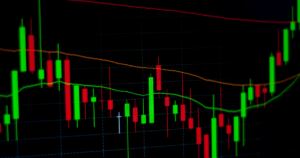Introduction
Forex trading has gained significant popularity in Singapore, attracting both seasoned traders and newcomers to the financial markets. Singapore, known for its robust financial sector and favorable business environment, offers an ideal platform for individuals interested in trading currencies. In this article, we will provide a comprehensive guide to forex trading in Singapore, covering key aspects such as regulations, popular forex brokers, trading strategies, and tips for success.
Regulations and Licensing in Singapore
Forex trading in Singapore is regulated by the Monetary Authority of Singapore (MAS). The MAS plays a crucial role in ensuring the integrity and stability of the financial markets. It regulates and licenses forex brokers, ensuring they adhere to strict guidelines and maintain high standards of conduct.
To engage in forex trading in Singapore, individuals must open an account with a licensed forex broker. It’s essential to choose a broker regulated by MAS to ensure the safety of your funds and trading activities.
Popular Forex Brokers in Singapore
Singapore offers a wide range of forex brokers catering to the diverse needs of traders. Some of the popular forex brokers in Singapore include:
- IG: IG is a well-established broker known for its comprehensive trading platform and extensive range of trading instruments. It offers competitive spreads and provides access to various markets, including forex, indices, commodities, and cryptocurrencies.
- OANDA: OANDA is a reputable broker that has been serving traders for over two decades. It offers a user-friendly platform, competitive pricing, and a wide range of educational resources for traders of all levels.
- City Index: City Index is a global broker that provides access to a broad range of markets, including forex, stocks, indices, and commodities. It offers advanced trading tools, research materials, and excellent customer support.
Before choosing a broker, it’s crucial to consider factors such as regulatory compliance, trading platforms, spreads, fees, customer support, and available trading tools to ensure it aligns with your trading requirements.
Forex Trading Strategies
Successful forex trading in Singapore requires the implementation of effective trading strategies. Here are some popular strategies used by traders:
- Trend Following: This strategy involves identifying and trading in the direction of established trends. Traders analyze charts, moving averages, and trend indicators to identify potential entry and exit points.
- Range Trading: Range trading involves identifying price ranges in which a currency pair is trading and taking positions near support and resistance levels. Traders aim to profit from price oscillations within the defined range.
- Breakout Trading: Breakout traders look for significant price movements beyond established support or resistance levels. When a breakout occurs, traders enter positions in the direction of the breakout, expecting further price momentum.
- News Trading: News traders capitalize on market volatility resulting from economic announcements, central bank decisions, or geopolitical events. They closely monitor news releases and enter positions based on the anticipated impact on currency prices.
It’s important to note that each strategy has its own risks and rewards. Traders should thoroughly understand and test a strategy before implementing it in live trading.
Tips for Success in Forex Trading
To enhance your chances of success in forex trading, consider the following tips:
- Educate Yourself: Forex trading requires continuous learning. Invest time in understanding fundamental and technical analysis, risk management, and trading psychology. Stay updated with market news and trends to make informed trading decisions.
- Develop a Trading Plan: Create a well-defined trading plan that outlines your goals, risk tolerance, and trading strategies. Stick to your plan and avoid impulsive trades based on emotions.
- Practice with a Demo Account: Before trading with real money, practice your strategies and test new ideas using a demo account. This allows you to gain experience and confidence without risking your capital.
- Manage Risk: Implement proper risk management techniques, such as setting stop-loss orders, diversifying your portfolio, and avoiding excessive leverage. Never risk more than you can afford to lose.
- Keep Emotions in Check: Emotions can cloud judgment and lead to poor decision-making. Maintain discipline, control greed and fear, and avoid emotional trading.
Frequently Asked Questions
Q1: Is forex trading legal in Singapore?
Yes, forex trading is legal in Singapore. The MAS regulates and licenses forex brokers to ensure a safe and transparent trading environment.
Q2: How much capital do I need to start forex trading in Singapore?
The capital required to start forex trading in Singapore varies depending on your trading goals, risk tolerance, and chosen broker. Some brokers may have minimum deposit requirements, which can range from a few hundred to a few thousand dollars.
Q3: Do I need to pay taxes on forex trading profits in Singapore?
In Singapore, forex trading profits are not subject to capital gains tax. However, if forex trading is considered your main source of income, it may be subject to income tax. It’s advisable toconsult a tax professional or the Inland Revenue Authority of Singapore (IRAS) for specific tax guidelines.
Key Takeaways
Forex trading in Singapore offers an exciting opportunity for individuals interested in participating in the global currency markets. To summarize:
- Singapore’s financial sector is well-regulated by the MAS, ensuring a safe and transparent trading environment.
- Choose a licensed forex broker that suits your trading needs and preferences.
- Implement effective trading strategies such as trend following, range trading, breakout trading, or news trading.
- Educate yourself, develop a trading plan, and practice with a demo account before trading with real money.
- Manage risk effectively and keep emotions in check to make informed and rational trading decisions.
Remember, forex trading involves inherent risks, and success requires continuous learning, discipline, and patience. With the right knowledge, skills, and mindset, forex trading in Singapore can be a rewarding endeavor.








